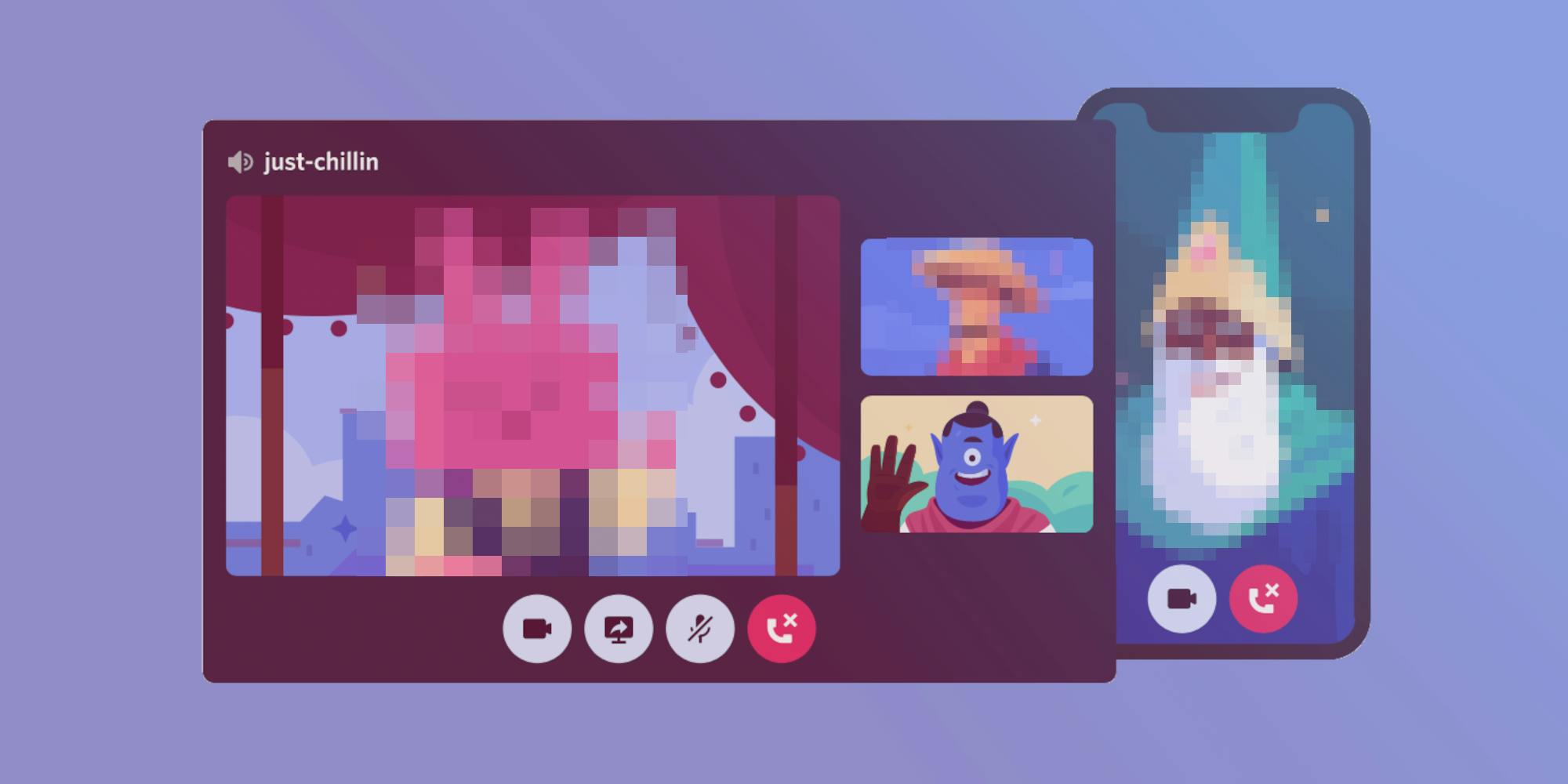
Opinion
This month, social media messaging app Discord cracked down on NSFW content access for iOS users. After popular backlash, Discord walked back some of its restrictions—but not all of them.
In its revised iteration, Discord will ask 18+ users to opt in to NSFW content on desktop before being allowed to view it on iOS devices. NSFW servers deemed "specifically focused on explicit pornographic content" will still not be accessible on iOS altogether.
When reached for comment, a Discord representative told the Daily Dot that its NSFW restrictions were made in compliance with Apple's iOS App Store policies. Apple, as the Verge notes, has "firm restrictions on nudity in the App Store" and only grants developers an exception for "incidental 'NSFW content'" via user opt-in.
Whether Apple or Discord is responsible for the policy, the messaging platform's move toward NSFW content censorship is as concerning as it is unsurprising. Social media companies have increasingly cracked down on adult content over the past few years. Tumblr famously banned NSFW material in 2018, and Patreon began targeting erotic hypnosis content the following year, followed by anime porn and yaoi.
Twitter, Instagram, and Facebook have all faced credible accusations of shadowbanning sex workers. Safe harbor for smut creators is becoming increasingly rare online; even independent art site Artoful officially banned 18-plus material in its terms of service this month.
Social media censorship reflects ongoing institutional crusades against adult content and its creators. In 2018, SESTA-FOSTA dealt a significant blow to sex workers and their online communities. In 2020, the EARN IT Act bill promised to kneecap Section 230 protections, followed by the equally censorious (and widely panned) SISEA.
Utah's governor recently signed a bill filtering pornographic access on smartphones, provided five other states enact similar laws. In January, a lawsuit filed by the anti-porn organization National Center on Sexual Exploitation posed the risk of diminishing NSFW content access on Twitter, sparking widespread panic across the site.
While political anti-porn stances are nothing new, adult content's increased scrutiny from above should be alarming. Institutional gatekeeping over sexual material would devastate free sexual expression online, robbing sex workers of their income and removing queer access to LGBTQ adult artwork and sexual health resources.
"If private companies are compelled by governments or advertisers to be arbiters of what parts of our bodies is 'acceptable' content, the social progress of the past decades will slow," Jillian York, a director for the Electronic Frontier Foundation, wrote for Salon. "New technologies like virtual reality ... are coming of age; if such new platforms are held to puritanical, censorious standards, then yet another mode for self-expression will have been diminished before it even fully gets off the ground."
Porn moral panic from above and below

Many theories exist about why social media companies ban adult content. In a 2020 piece on erotic hypnosis bans, hypno kink creators told the Daily Dot that payment processors were primarily to blame for their own artwork being stigmatized: Credit card companies, banks, and companies like PayPal bully social media into censoring content deemed "high risk." In other words, it's less likely that Patreon wants to ban hypno kink creators and more likely the platform is being bullied into censoring content by its financial partners (and its financial partners' partners).
But as institutions grapple with adult content and all its political intricacies, there's a growing cultural panic from below that's enabling these moves, if not celebrating them. Movements like TikTok's "Cancel Porn" and Reddit's NoFap have risen up, professing the woes of porn addiction. Scientific studies with anti-porn biases routinely argue adult content "rewires the brain to a more juvenile state" and shrinks "gray matter."
Again and again, experts have found porn addiction is not a real phenomenon. Researchers have increasingly criticized studies for reinforcing cultural norms around porn first, science second. And all those stories about brains breaking from viewing too much porn? Experts have broken down these claims and examined how they rely on extremely narrow correlational relationships, comparable to saying science proves "masturbating would make you go blind."
Behind all these bunk studies comes a pervasive cultural fear that pornography will demolish the hallow grounds of sexuality and corrupt every American.
"Porn needs to start being shamed again. Don’t call it natural. Don’t accept it," a viral Tumblr post with over 10,000 notes states. "Make a contemptuous and disgusted face when you see a guy talk about it, or a woman support her [significant other's] porn habits."
This is a moral panic, and for Americans, it's a beloved pastime. Vox's Aja Romano argues the "Satanic Panic" of the 1980s is "alive and well today," and its legacy is seen "through American culture and politics, in everything from social media moralizing to QAnon." (Romano previously contributed to the Daily Dot.)
As Romano notes, the irony of the moral panic is that it damages its supposed victims most—in the 1980s, children—by silencing them so that the panic may play out for the anxious group's benefit.
"Through it all, the media fueled a public wave of fear that spurred entire groups of rational, thinking adults to collectively buy in: parents and prosecutors, therapists and investigators, jurors and judges, reporters and readers," Romano warns. "In a time of deep social upheaval, it’s all too easy to see those mechanisms falling into place once more, ready to bend toward the next unresistant, easily ostracized stranger, eager to label them 'dangerous.'"
Indeed, the media is just as guilty as TikTok for stoking the flames. In December, the New York Times sparked an anti-Pornhub moral panic across social media after columnist Nick Kristof parroted anti-sex worker organization Exodus Cry's claims that the adult giant peddles many videos "of children being assaulted."
While child sexual abuse material has appeared on Pornhub in the past, a report from the National Center for Missing and Exploited Children reveals Pornhub parent company MindGeek received vastly fewer child sexual exploitation reports than Google, Twitter, Snapchat, TikTok, or Facebook. The latter accounted for 95% of all reports.
But facts don't matter when it comes to feelings. Self-righteous indignation around "saving women" is deemed more important, even when sex-working women claim Exodus Cry's crusade is destroying their income during the pandemic.
Why are Americans so anxious about porn?

If culture wars are rooted in pervasive anxiety around some sort of unspeakable, repressed power coming to light, then free, open access to adult content is a very real destabilizing force for traditional American beliefs around sex and bodies.
Kink and fetish porn challenges white Anglo-Saxon Christian notions that sex primarily exists for procreation, not pleasure. Queer porn recasts adult content as a space for gay, lesbian, and trans desire, not just straight pleasure. When people can share and access porn freely, it lets them grapple with culturally taboo desires and feelings. In 2017, teenage millennials were much more likely to report trying anal sex, and straight women were much more likely to experiment with other women, Women's Health reports.
This sort of sexual exploration challenges traditional political and cultural control over American bodies. Porn may not be sex education, but it is art, and art tends to confront our preconceived notions about the world. The only way to close Pandora's box is to suppress the content, hence the sociocultural backlash.
In its most extreme, anti-porn hysteria makes the jump from mere disdain to open calls for violence against the adult industry and its sex workers. On far-right social media network Gab, right-wing Christian extremist groups celebrate Exodus Cry and its allies, promising to use extrajudicial means to bring MindGeek to justice, Vice notes. In one case, far-right women offered to patrol Los Angeles with baseball bats "looking for whores, pimps," and trans people, all in the name of defending "women and children."
"While Exodus Cry has largely tried to get Pornhub shut down using political and social media pressure, its rhetoric is used by people who want to take matters into their own hands," reporter Samantha Cole writes. "Sex workers and organizations targeted by those people believe that the rhetoric is going to lead to real world violence, and say that several high-profile mass killings can be traced back to anti-sex worker rhetoric more broadly."
It's not just major corporations and politicians that are eager to ban porn and marginalize sex workers' access to social media. It's our fellow Americans, too. Calls for censorship are growing, violent rhetoric is increasing, and as support for decriminalizing sex work reaches mainstream high, so too does reactionary backlash aimed at the sex trade's most vulnerable members.
The culture war around porn is escalating. Discord won't be the last flashpoint. When the next shoe drops, keep a close eye on whether it's your neighbor peddling the anti-scientific "sex addiction" conspiracy theories and whorephobic rhetoric.
The post Discord is the latest battleground for moral panic about porn appeared first on The Daily Dot.
0 Commentaires